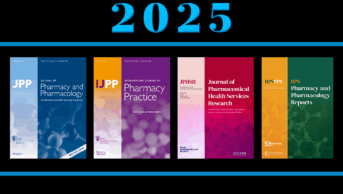
Shutterstock.com
Research has revealed that patients were involved in the planning stages of just 18% of published clinical trials across several disease areas.
The study, published in The BMJ on 10 April 2025, analysed the patient and public involvement — in how research is designed, conducted and disseminated — of 360 published articles reporting on randomised controlled trials and 299 respective protocols.
Looking at clinical trials published between 2015 and 2023 in The BMJ, JAMA, New England Journal of Medicine and The Lancet, the analysis identified patient and public involvement in 64 (18%) articles and 56 (19%) protocols, which set out how the trial will be carried out.
The authors found that patient and public involvement was most likely to occur during the trial development phase, including feedback on study design, review of study materials and assessment of feasibility.
Patient and public involvement was found to be more visible in published articles (58%) compared with protocols (32%).
However, the authors said that contributions were often vague, owing to a lack of detailed information on specific outcomes and the effect on decision-making within the trial.
Commenting on the study, a spokesperson for the Specialist Pharmacy Service said: “Although this provides a disappointing picture of patient and public involvement reporting, the fact that the highest levels of patient and public involvement reporting were observed in the past two years may suggest the beginning of an upward trend.”
A corresponding editorial, also published on 10 April 2025, urged researchers to better utilise the patient voice throughout their reporting.
Lead author Sophie Staniszewska, professor of health research at the University of Warwick, said: “Patient and public contributors can and should be included at all stages of research, including identifying key questions, designing, recruiting, selecting outcomes and implementing findings.”
Claire Anderson, president of the Royal Pharmaceutical Society, said: “It’s concerning to see there’s an ongoing gap in how patient and public involvement is reported in clinical trials. Patients and public involvement is key to reflect real-world needs, and consistent reporting standards that recognise this will help share insights in shaping health outcomes.”
On 10 April 2025, the Medicines and Healthcare products Regulatory Agency also published its first analysis of UK clinical trial applications in the British Journal of Clinical Pharmacology.
Completed in collaboration with the University of Liverpool, the report analysed 4,616 clinical trials — submitted between 2019 and 2023 — and found that 3,927 (85%) clinical trials were industry-sponsored and 689 (15%) clinical trials were sponsored by universities, hospitals and charities.
In addition, the analysis found revealed that cancer trials formed nearly one-third (29%) of all studies, which greatly overtakes other major disease groups.
Despite being the world’s biggest killer, researchers found that heart disease received 5.2% of research focus, while common conditions relating to chronic pain, respiratory and mental health were among the least likely to feature in trials.
Similarly, cutting-edge gene and cell therapies represented a growing clinical area but formed only 3.4% of trials.


